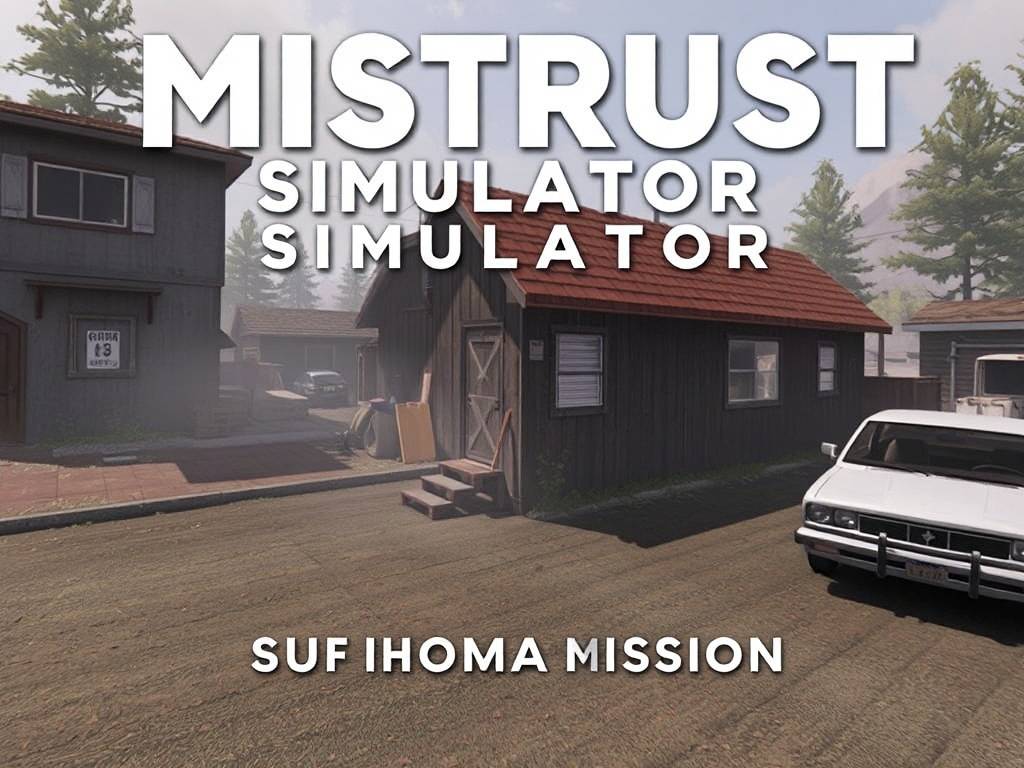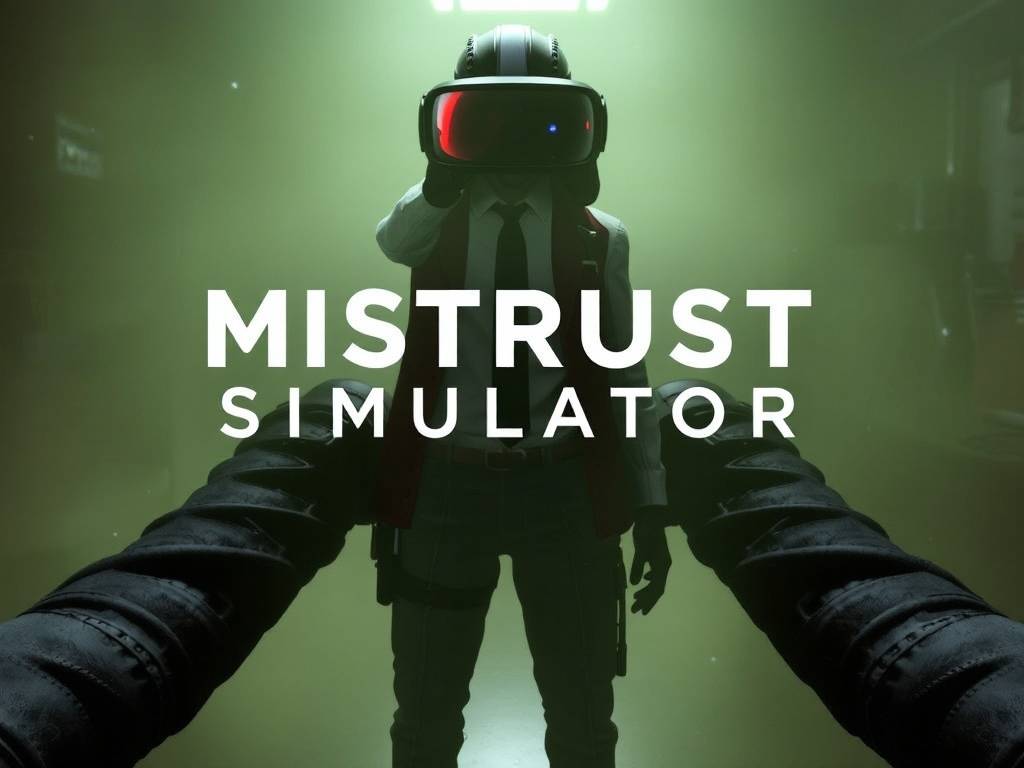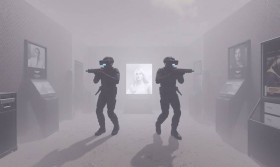Mistrust Simulator VR: A Descent into Digital Paranoia with the 'Suspicion Missions' DLC
Virtual Reality has long promised to transport us to new worlds, but few experiences dare to hold a dark mirror to our own psyche quite like Mistrust Simulator VR. The base game established itself as a harrowing deep dive into the erosion of truth, where every piece of information could be a lie and every ally a potential betrayer. Now, the groundbreaking 'Suspicion Missions' DLC expands this chilling premise, not by adding more content, but by fundamentally rewiring the player's perception of reality within the game. It’s less an expansion and more a psychological software update, one that installs a persistent, low-grade fever of doubt directly into your subconscious.
The Core Loop: A Foundation of Fragile Truth
For the uninitiated, Mistrust Simulator VR places you in the role of a data analyst working for a nebulous, all-powerful corporation. Your job is simple: process intelligence feeds from field agents and decide which pieces of information to verify, which to archive, and which to flag as disinformation. The catch? The system is designed to be flawed. Audio logs contain subtle inconsistencies; video feeds have been doctored; even the metrics indicating an agent's stress levels can be spoofed. Your choices directly impact the success or failure of missions and, ultimately, the fate of the agents. The VR element is masterful—leaning in to scrutinize a document for a watermark, or spinning around in your chair to cross-reference data on multiple screens, makes the paranoia intensely personal and physically immersive.
The 'Suspicion Missions' DLC: The Gaslighting Engine
The DLC, aptly named 'Suspicion Missions', introduces a new, dynamic layer: the Trust Algorithm. This isn't a visible meter but an underlying AI director that curates your experience based on your playstyle. The genius of this DLC lies in its four core pillars:

- The Personal Betrayal: The DLC introduces a handler, a character who communicates with you via a crisp, reassuring voice in your ear. This character becomes your anchor, your guide through the corporate chaos. Then, the Algorithm begins its work. You might receive two conflicting orders: one from the official channel and one from your handler, whispered like a secret. Who do you believe? The game begins to generate evidence supporting both realities. A mission succeeds, but your handler congratulates you with a tone that feels… off. Was that a tremor of sarcasm? The seed of doubt is planted.
- The Environmental Shift: The sterile office environment, once a constant, becomes unreliable. You might return from a brief data-mining session to find your chair slightly turned, a file on your desk moved, or the lighting dimmed. These are not jump scares; they are quiet, almost dismissive changes that force you to question your own memory. "Was that picture frame always tilted?" The line between a game glitch and a narrative feature becomes deliciously blurred.
- The Data Doppelgänger: The DLC's most brutal feature is the introduction of mirrored missions. You'll process data for a mission and see it conclude successfully. Hours later (in-game time), an almost identical mission brief appears, but with key details altered. The agent's name is spelled differently, the location is slightly changed. Has the timeline been reset? Are you seeing a parallel operation? Or is the corporation testing your attention span? The game offers no explanation, leaving you to wrestle with the contradiction.
- The Collective Delusion: For the first time, Mistrust Simulator VR introduces optional, asynchronous multiplayer elements. You can see the percentage of other players who verified or flagged a particular piece of intelligence. But the DLC can manipulate these numbers. You might be certain a video is fake, only to see that "98% of analysts verified it as true." This creates a powerful peer pressure effect, making you distrust not only the game but also the community playing it.
The VR Advantage: A Body of Anxiety
This experience would be compelling on a flat screen, but in VR, it is transformative. The physiological response is real. The slight sweat under the headset, the urge to physically look over your virtual shoulder, the hesitation before clicking a button—these are not imagined emotions. They are the core gameplay mechanics. When your handler's voice comes through the 3D spatial audio, whispering directly into your right ear, it feels intimate and conspiratorial. When an environmental change occurs, you don't just see it; you feel the disorientation in your gut. Mistrust Simulator VR: Suspicion Missions weaponizes the immersion of VR to make its psychological attacks profoundly effective.

Conclusion: A Triumph of Uncomfortable Design
The 'Suspicion Missions' DLC does not provide answers. It only provides better, more sophisticated questions. It is a masterpiece of uncomfortable design, a package that simulates the feeling of gaslighting with terrifying accuracy. It forces players to confront a horrifying question: when every source is compromised and every sense can be deceived, what is the cost of trusting anything—or anyone—at all?
This DLC is not for everyone. It is a demanding, often stressful experience that can leave you feeling genuinely uneasy. But as a piece of interactive art and a commentary on our information-saturated age, it is unparalleled. It is less a game and more an experiential journey into the heart of modern paranoia, and it is one of the most important and unforgettable VR experiences ever created.


















